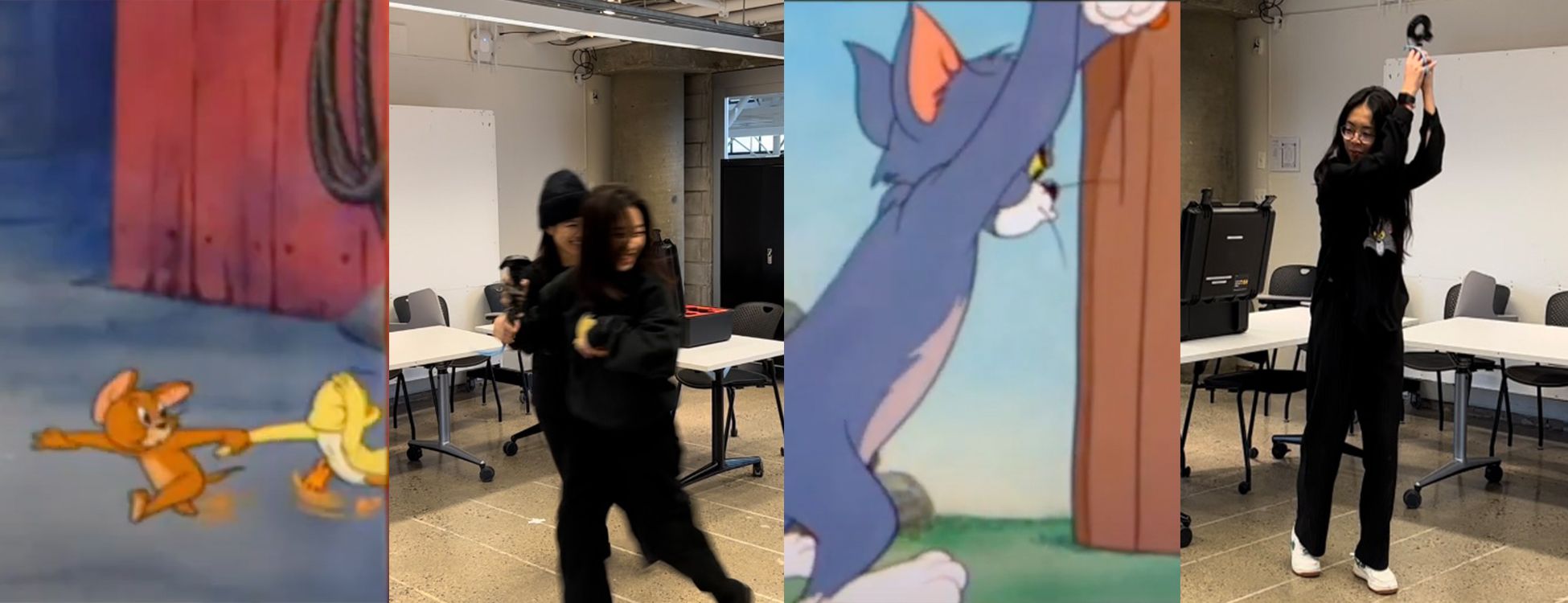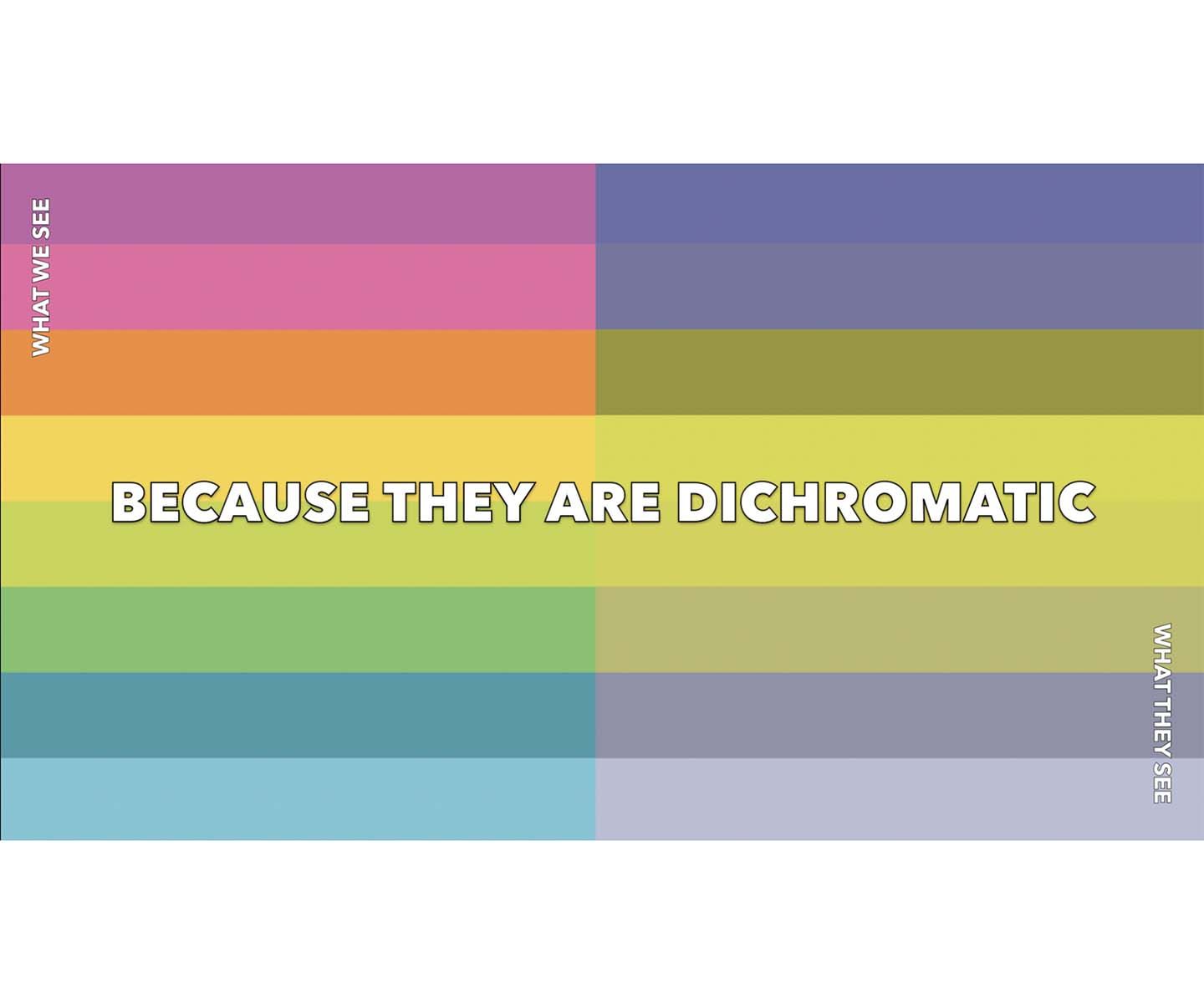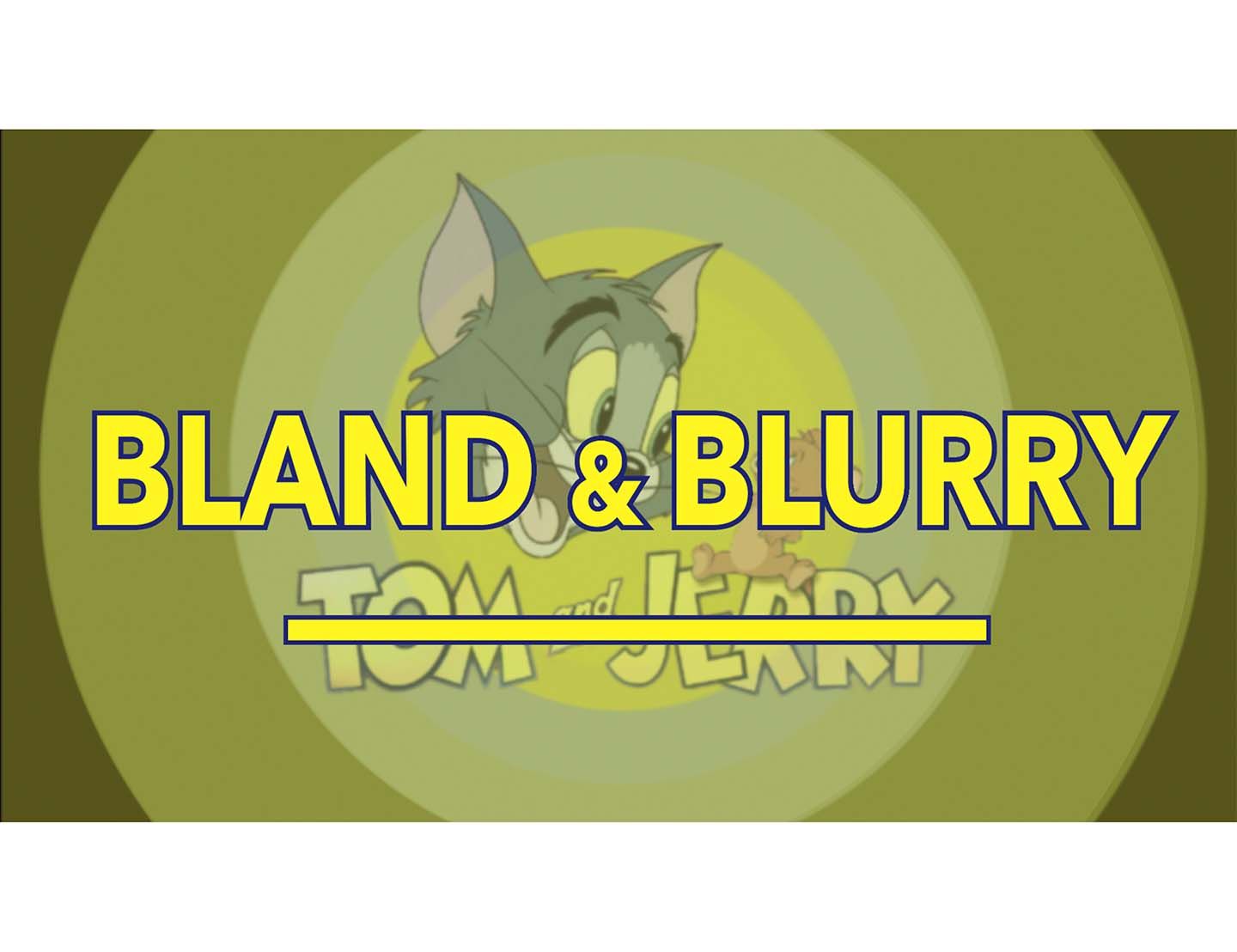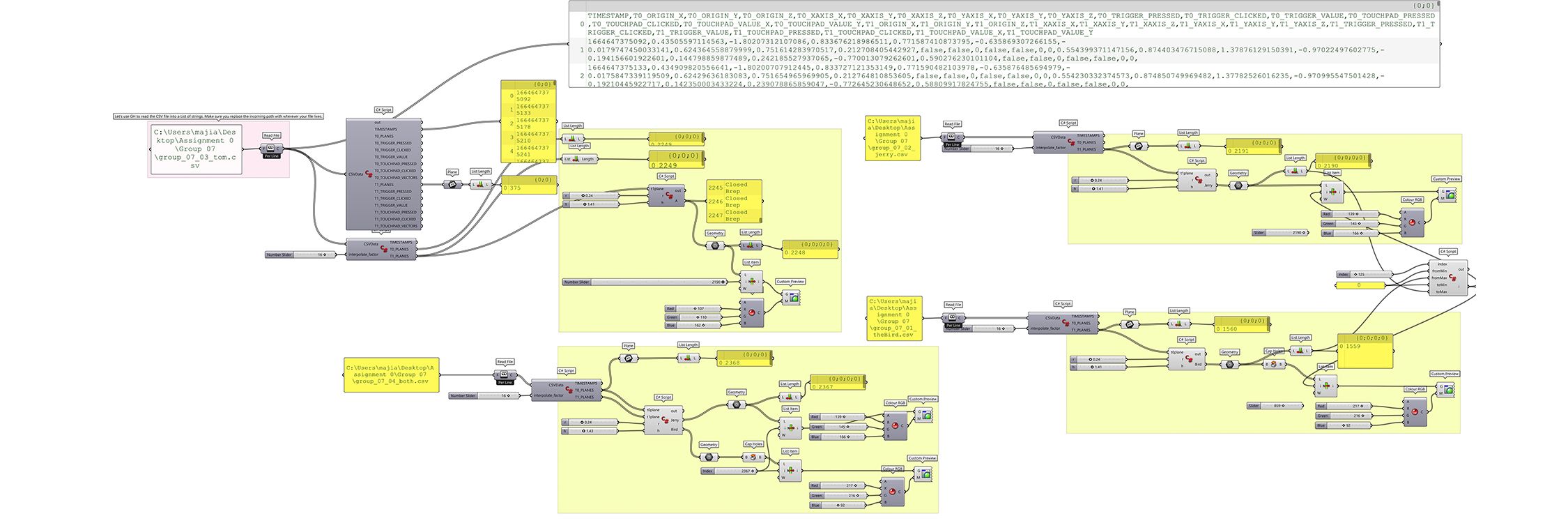For Dichromatic Eyes
Video Content for You AND your Dog
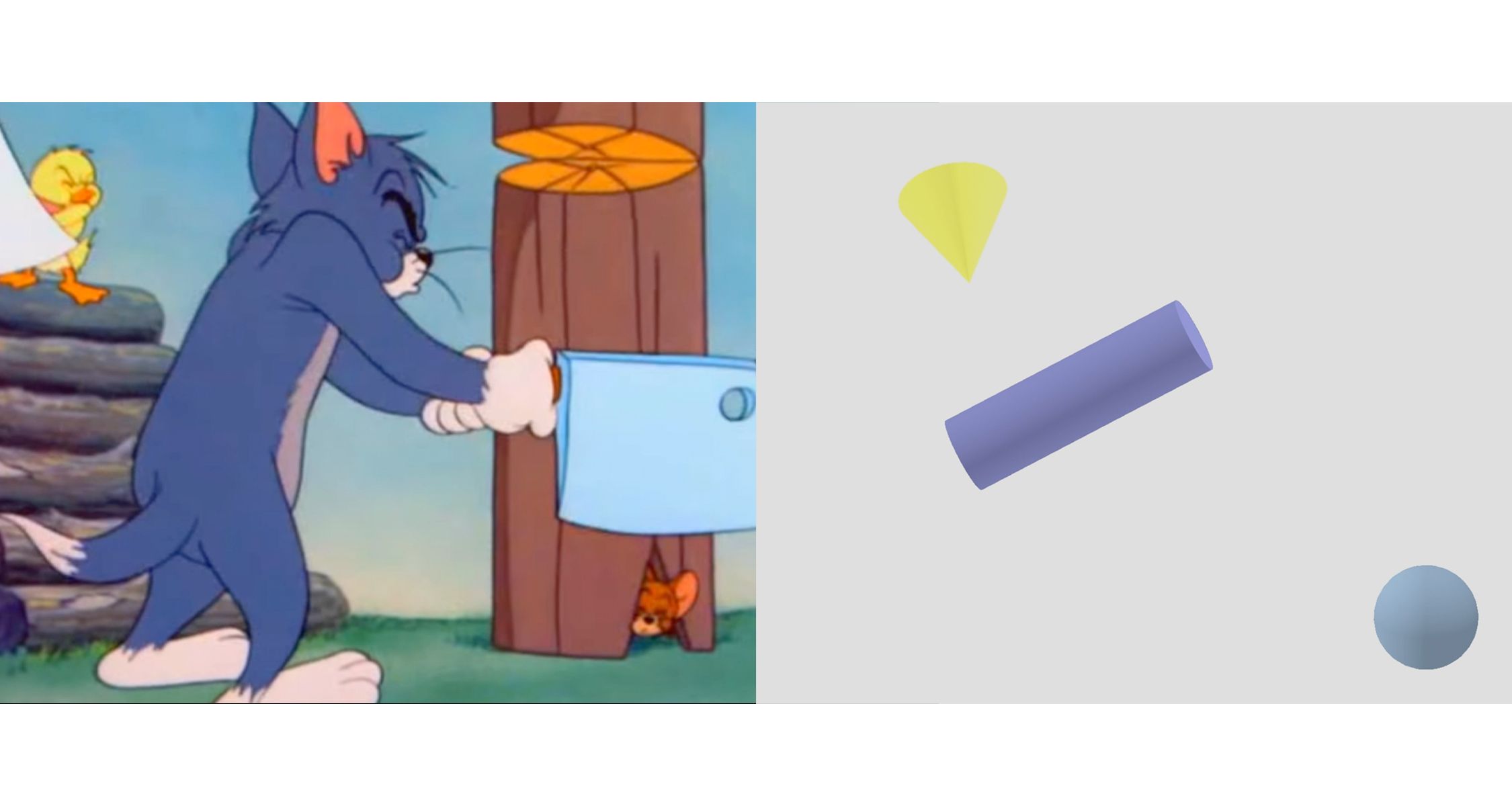
Wonder why your four-legged pals get bored so quickly watching TV? That's because dogs see the world differently than humans do. Possessing only two types of cones in their retinas, dogs can only discern yellow, blue, and some shade of grey. However, their eyes have 10-20 times greater motion sensitivity than humans. With an understanding of dogs' visual perceptions, we used this exercise to explore the possibility of reinterpreting and exaggerating motions from the human video content to make the videos as entertaining for dogs as they are for us.
Our team reenacted (in real-time) a short excerpt from "Tom and Jerry." We recorded the movements of each character, translated them into basic geometric shapes to further heighten the motions, and recolored them with hues visible dogs. We selected a clip that includes a breadth of movement types and intensity to explore how these variables impact the visual outcomes produced in grasshopper. To analyze the dog-friendliness of our project, we borrowed our friend's dog for a user test. Although the sample size is extremely small and, therefore, might be extremely biased, it did seem that our reenacted, recolored version of "Tom and Jerry " better captured the dog's attention.
